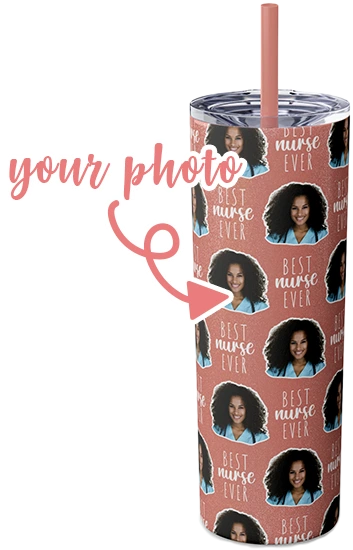

Are you a nurse with a piercing? Or perhaps you’re considering getting a piercing and have concerns about how it may impact your career in nursing.
It’s always a good thing to learn about things to make informed decisions.
Join me in this article. We will explore, in simple terms, the potential implications of piercings for nurses, including their impact on patient care, safety, and professionalism.
The short answer is: Yes, nurses can have piercings, but the policies regarding piercings may vary depending on the healthcare facility, country, and specific role of the nurse.
While some healthcare institutions have strict dress codes that prohibit visible piercings, others may have more lenient policies that allow certain types of piercings.
In many cases, the decision on whether nurses can have piercings is based on considerations such as patient safety, infection control, and professional appearance.
Healthcare facilities prioritize the well-being and comfort of patients, and visible piercings may be seen as a potential risk to patient safety.
For example, dangling earrings or facial piercings could pose a risk of injury if they were to be accidentally pulled or caught during patient care activities.
Infection control is another crucial factor in healthcare settings.
Infection control is another crucial factor in healthcare settings
Piercings create openings in the skin, which can increase the risk of infection transmission.
Therefore, healthcare facilities may require you to remove certain types of piercings, especially those located in areas that come into direct contact with patients.
Additionally, maintaining a professional appearance is important in the healthcare field. Some healthcare facilities may have policies that restrict visible piercings to ensure a uniform and consistent image among healthcare professionals.
These policies aim to promote trust, confidence, and professionalism in the eyes of patients and their families.
Yes, you can have a nose piercing as a nurse, but it still depends on the policies of your workplace.
Subscribe now and get 15% OFF your personalized Tumbler featuring your name/photo.

Guidelines regarding visible piercings, including nose piercings, will vary among healthcare facilities.
Some healthcare institutions have strict dress code policies that prohibit visible piercings like nose piercings. They aim to ensure a professional appearance and minimize potential distractions during patient care.
Other healthcare facilities may have more lenient policies and be okay with nurses having nose piercings as long as they are small and discreet.
Their focus is on prioritizing patient safety, infection control, and maintaining a professional image.
The decision often revolves around the potential risks associated with nose piercings.
Healthcare facilities prioritize your safety and aim to prevent injuries or infections that may occur if the piercing is accidentally pulled or caught onto equipment during patient care activities.
As is the case with tattoos, it’s important for you to familiarize yourself with your specific workplace policies regarding nose piercings.
If you plan to have a nose piercing, you should first consult your employer’s guidelines to ensure compliance.
Again, it depends on the facility’s guidelines.
However, from my own experience, septum piercings are less accepted in healthcare settings.
Septum piercings, by their nature, are more visible and may draw attention, which can be seen as detracting from the professional image expected in a health facility.
In addition to that, there may be concerns about the potential for the piercing to interfere with the use of personal protective equipment (PPE).
While it varies depending on the facility’s guidelines, there are certain piercings that are generally discouraged or prohibited in most health facilities.
These include:
Earrings that are large, heavy, or have dangling components may pose a risk of being pulled or caught during patient care activities.
Piercings on the face, such as nose rings, eyebrow piercings, or lip piercings, may be discouraged due to potential risks of injury or interference with personal protective equipment (PPE) usage.
Tongue piercings can affect speech and communication, and they may interfere with proper oral hygiene practices in healthcare settings.
Piercings on the inside of the mouth, such as lip or cheek piercings, can potentially increase the risk of accidental injury or infection transmission.
If you’re considering getting a piercing as a nurse, it’s best to avoid the above.
Yes, piercings can potentially affect your chances of being hired as a nurse, as it depends on the specific policies and preferences of the healthcare facility to which you are applying.
Certain employers may enforce strict dress codes that restrict visible piercings or limit them to specific types.
In such cases, visible piercings could be a factor considered during the hiring process.
So, keep that in mind when getting a new piercing, or when applying for a new job.
If the employer wants someone with no piercing, he may choose someone else.
The reason why some healthcare settings restrict piercings is mainly to maintain professionalism, and hygiene, and ensure patient safety.
These are the 3 main reasons why piercings may not be allowed or may be subject to limitations:
Professionalism: Healthcare facilities often have dress code policies to maintain a professional appearance.
They aim to create an environment where healthcare providers are seen as authoritative, competent, and trustworthy.
Visible piercings, especially those that are considered unconventional or excessive, may be perceived as unprofessional and can potentially impact the provider-patient relationship.
Infection Control: In healthcare settings, infection control is of utmost importance.
Piercings can increase the risk of infection due to the presence of foreign objects in the body.
Additionally, performing routine patient care tasks on individuals with piercings can potentially introduce harmful bacteria or compromise the effectiveness of protective gloves, putting both the patient and the healthcare provider at risk.
Safety and Patient Comfort: Certain types of piercings, such as facial or oral piercings, can interfere with the use of personal protective equipment (PPE) like masks, goggles, or face shields.
They can hinder proper fit or create discomfort, potentially compromising the nurse’s safety and increasing the risk of exposure to infectious agents.
It’s important to note that facial piercings could potentially cause harm to nurses or patients if they are accidentally pulled or caught during patient care tasks.
Unlike tattoos, for example, piercing shouldn’t be an issue, as they can be easily removed.
If the health institution you are working for, or applying to, doesn’t allow piercings, you can just remove them during working hours.
Well, studies say yes.
A study found that nose and lip piercings lead to lower ratings of competence and trustworthiness.
Nurses, and healthcare providers in general, with unconventional piercings are seen as less confident, professional, efficient, and approachable.
According to a different, but similar study, patients rate tattooed providers lower, especially if they have facial piercings.
This is not to scare you; it’s important to note that individual circumstances may vary.
While studies indicate potential negative perceptions of piercings and tattoos in healthcare settings, it’s essential to consider the specific context and policies of your healthcare facility.
Yes, you can have piercings as a nurse, but it’ll depend on many factors such as the size and type of the piercing, and the facility’s guidelines. Make sure to read your facility’s guidelines and have an open conversation about it with your employer.
At the end of the day, it’s all about your employer and your patients.


We take on average 4 working days to ship.
Standard shipping: 7-21 days.
Fast Shipping: 3-8 days

